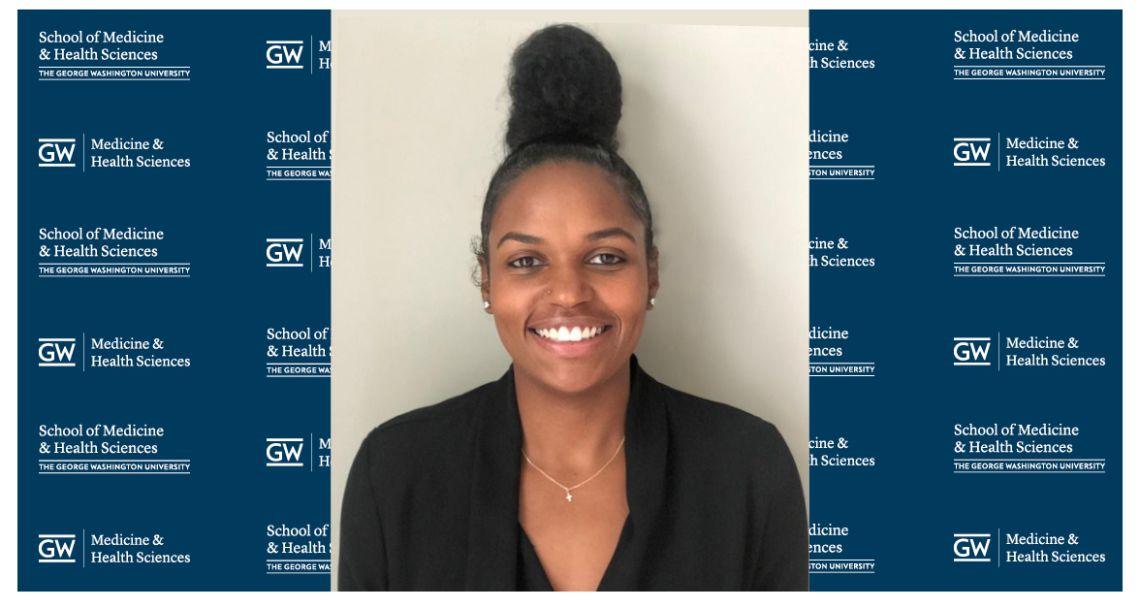Words can’t truly capture the sense of reward and thrill helping a patient walk again. As a physical therapist and a board-certified neurologic clinical specialist, Tiphani Jackson, neurologic resident ’20, experiences that daily.
A Maryland native, Jackson, who received her Doctorate of Physical Therapy (DPT) from Howard University in 2018, was able to stay close to home while advancing her education by attending the MedStar National Rehabilitation Network (MedStar NRH)/The George Washington University (GW) Neurologic Residency Program. The year-long program is designed to provide specialty training and mentorship in the areas of clinical practice, teaching, and research related to advanced neurologic disorders.
When asked why she chose GW for her residency, Jackson described the program’s well-rounded experience in multiple practice settings: acute, inpatient, and outpatient rehabilitation. Jackson was first introduced to the residency program as a student during a rotation at MedStar NRH, where she was surrounded by neurologic residency program mentors. These mentors guided and encouraged her before, during, and after her clinical rotation. “The mentors were a huge draw to the program,” Jackson said. “They really care about the success of each resident.”
The residency program provided Jackson with a blend of opportunities to learn from mentors, gain clinical experience, and develop teaching skills. “Teaching is the ultimate form of knowledge,” Jackson said as she expressed her passion for teaching. “It is a great way to stay connected to the latest research in the neuroscience field and to truly become an expert in the subject.”
Currently, Jackson is working at MedStar Health where she treats patients with a wide variety of neurological conditions. “While physical therapy plays a role in the overall wellness of these patients, there is a gap,” Jackson said. “As physical therapists, we need to bridge that gap, provide holistic education on well-being and bring awareness to available community resources.”
When asked about future plans, Jackson described her dream of opening a recreational center filled with adaptive equipment, where people with neurological impairments can come and exercise and professionals can screen patients. “Patients can come and feel like they’re at a regular gym,” Jackson said. “All patients should have a place they can go to feel safe and included.”
